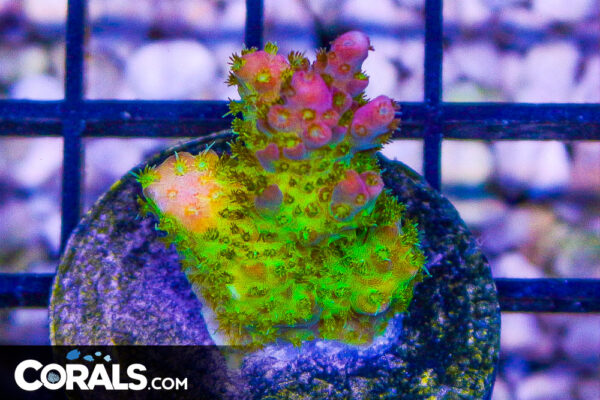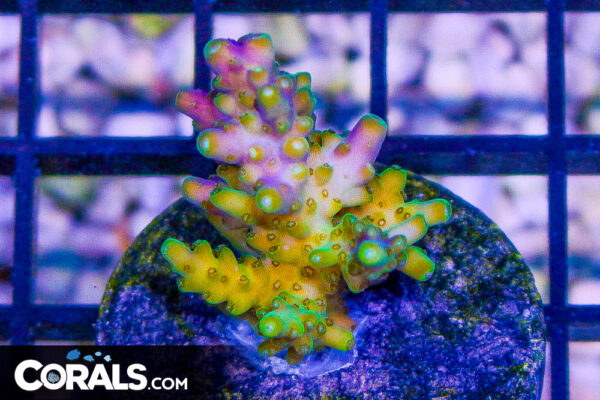Acropora Frags For Sale
Also Known As: Acropora, Acroporas, Acro, Acros, Sticks (Slang)
Scientific Name: Acropora sp.
Why Buy this item:Acros are one of the most rewarding and fun to keep corals we offer. They do require more care and experience, but many hobbyists find them to be extremely worthwhile. The structure, color, and growth rates are unmatched by just about all other coral types.
Feeding/Diet:Acropora enjoy a fine balance between clean water but also a tank that is fed often with many thriving reef fish. Many well experienced reef keepers are changing their views on just how clean the water for SPS should be. Many are now finding higher levels of nutrients to be a very good thing as long as the tanks are still stable. This can help to increase color and growth rates.
Regional Differences:Many different types and color strains are unique to each collection region. More and more are found by the day! Making this an exciting coral with something new almost always hitting the market that people have never seen before.
Natural environment Info:Acroporas come in many different types with many different natural environments. However, for almost all of them we find they are collected in clean water with mostly stable parameters, high light, high flow, and large populations of reef fish. Acropora are often found closer to the surface of the water than other types of corals. However, some types are found in deeper water.
Natural Reproduction Info: Acropora grow very fast in the proper conditions in the wild and are large reef building corals. They also have massive spawn events.
Growth Rate: Fast
Growth Info:Acropora thrive in the right conditions and can quickly grow to overtake other nearby corals. Fragging these when they get too close to others might be necessary to reduce the risk that one hurts the other.
Placement:Acropora and all SPS corals should be secured well to part of you reef structure. After awhile they should encrust onto your structure and become even more secure long term. Prior to securing them however, it is important to be sure they are happy with the amount of light and flow they will need to thrive. We recommend securing them to their own small rock that can easily be moved around until the perfect spot is found.
Propagation & Fragging: This coral is best propagated by cutting with a specially designed wet band saw OR buy using a cutting tool such as coral cutters. Many people frag this coral with a wide variety tools with great success. They often remount the frags with reef glue or putty.
Shipping Info: Healthy Acropora have great success in shipping. Time frame, temp range, and clean packing water all play a large factor in shipping success.
What to look for when buying: Be sure the specimen you are buying is well settled in and proven to be adjusting well to captivity or just adjusting well to its aquarium after being shipped from anywhere. You can generally tell this by seeing if the polyps are out and it is not a pastel or bleached color. The colonies or frags should show some signs or new growth to ensure they are well settled in.
Common/Known issues:
Some pests such as flatworms and red bugs are a known threat to Acropora. We dip all incoming items and watch for these issues closely. Dips can kill the live pests if used properly, but the eggs often are still present after dips. It is key to monitor Acropora closely before offering them for sale and we do all we can to reduce the risks of all pests. However, before adding them to your aquarium you should quarantine them, dip them, and monitor them for any issues that may present even from the very best of coral vendors.
All of the above are things we look for and watch closely before offering any of these specimens for sale.

























